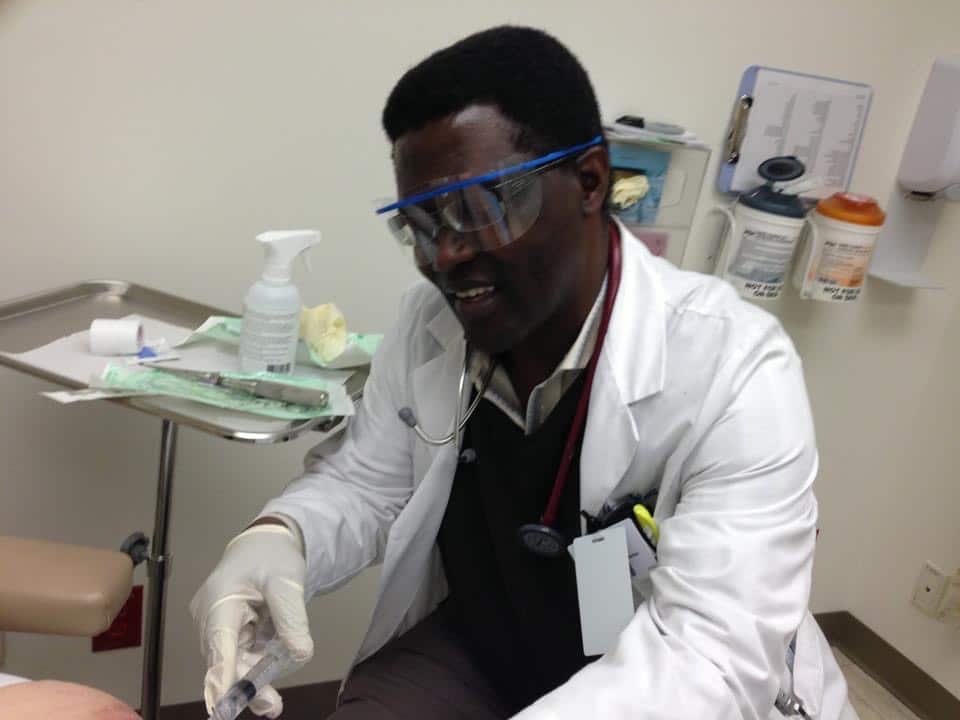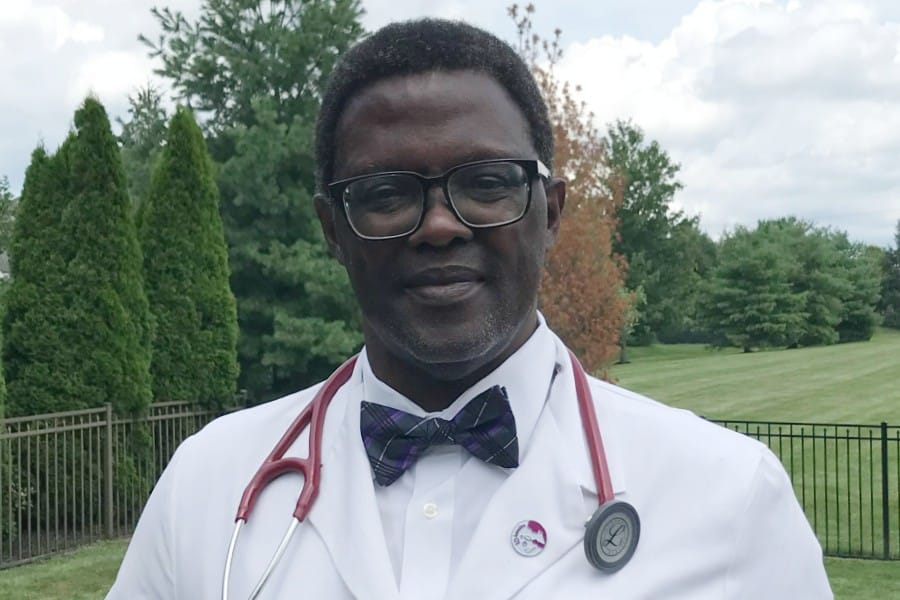COVID-19 stories from the front lines: Vaccine and therapeutics development for diseases with pandemic potential
According to Christopher da Costa, MD, PhD, FIDSA, there is very little in medicine that’s quite as exciting as infectious diseases. The unpredictability of an outbreak of a highly contagious infectious disease that could emerge without warning is fascinating – and the COVID-19 pandemic has been no exception.
With more than 20 years of clinical practice experience and over 15 years of experience working predominantly in vaccine and infectious diseases therapeutics clinical development for several large pharmaceutical and smaller biotech companies, Dr. da Costa felt prepared for the complex challenges brought on by the newly emerged COVID-19 pandemic. Working at the time predominantly as a consultant for a major contract research organization, he immediately began responding to the outbreak by assisting biotechnology companies with their efforts to develop vaccines and novel therapeutic agents targeted against the SARS-CoV-2 virus.
Dr. da Costa is an ID pandemic hero, advocating for equitable health care and working to bring research innovations to the forefront of the fight against deadly infectious diseases.
“There has been significant disruption to clinical work but minimal disruption to consulting work, which is the bulk of what I do and is done largely remotely. My immunology training has been immensely helpful for the recent work, particularly pertaining to my expertise in vaccinology and cytokine-related therapeutics,” said Dr. da Costa.
Cytokines are small proteins that are crucial in controlling the growth and activity of other immune system cells and blood cells, helping the body’s immune and inflammation responses. When released, they signal the immune system to do its job, including boosting its capabilities for fending off and limiting the untoward effects of invading viruses and other harmful organisms.
“Research has shown that treating cytokine ‘storms’ in COVID-19 patients may contribute to reducing severity of illness and preventing death. When a virus such as SARS-CoV-2 attacks the lungs, the body releases many mediators to fight the infection. There is evidence that untoward effects of these mediators may lead to poor outcomes,” said Dr. da Costa. “The high levels of pro-inflammatory cytokines create a cytokine storm, causing inflammation and other harmful effects that may lead to severe respiratory distress, multi-system organ and tissue damage or even death.”
At the Coalition for Epidemic Preparedness Innovations (CEPI), where he serves as a technical expert and leader of several scientific teams working on research and development projects for vaccines and therapeutics targeted to SARS-CoV-2 and viruses causing several other diseases with pandemic potential, Dr. da Costa has had the opportunity to contribute towards developing cutting-edge medical and scientific advances in the fight against epidemics and pandemics of infectious diseases. CEPI was instrumental to the successful clinical development and subsequent Emergency Use Authorization of several COVID-19 vaccines and is working towards facilitating equitable access to vaccines for low- and middle-income countries and other countermeasures for all diseases with pandemic potential.

His current focus is advancing development of the COVID-19 vaccine by using technologies that include nucleic acids, adjuvanted recombinant proteins and viral vectors, among others, by partnering with academia, industry partners and other stakeholders. Prior to joining CEPI, he was mostly engaged as a consultant and medical advisor, including working on clinical trial protocol development for COVID-19 therapeutics for biotechnology companies and in vaccine and blood transfusion safety surveillance for the FDA.
Outside of his research and consulting work, Dr. da Costa serves as the IDSA’s representative for the Ad Council and COVID Collaborative’s COVID-19 Vaccine Education Initiative to address vaccine hesitancy among minority groups. A member of the IDSA’s George W. Counts Memorial Minority Interest Group, he is passionate about reducing inequities in health care delivery.
“I am involved with the IDSA and IDSA Foundation because I feel a responsibility to facilitate and encourage raising awareness of the importance of working toward more equitable health care among future ID physicians, and also on the important role ID-trained physicians can play in bringing research innovations to the clinic to help combat infectious disease epidemics and pandemics, such as COVID-19, that may have devastating effects,” said Dr. da Costa.
He is also passionate about mentorship. As a volunteer for the MiOra Foundation, he develops policies and gives motivational talks to high school and college STEM students from underserved communities, many of whom plan on future careers in health care.
“Having roots in The Gambia, one of the smallest countries in Africa, I was inspired to pursue a career in infectious diseases, including tropical medicine. After high school and medical school, I returned to the United Kingdom, which is where I was born and spent the first decade of my life, to study for a Master’s degree in Clinical Tropical Medicine and later a PhD degree in Immunology, both at the London School of Hygiene and Tropical Medicine,” said Dr. da Costa. “Therefore, I am passionate about helping and encouraging students of all backgrounds to reach their untapped potential and chase their dreams.”
Dr. da Costa encourages anyone seeking a career in health care to consider working in clinical research in addition to clinical practice.
“Beyond the revolving door of clinical practice, a career in clinical research and development opens up a wealth of opportunities to have an even greater impact on human health” said Dr. da Costa. “The field of infectious diseases is exciting, unpredictable and layered with challenges that sometimes require heroic efforts from a diverse group of scientists and clinicians alike.”
For more COVID-19 stories from the front lines, check out our latest annual report.

